Double Up Food Bucks Alabama is enhancing communities by making...
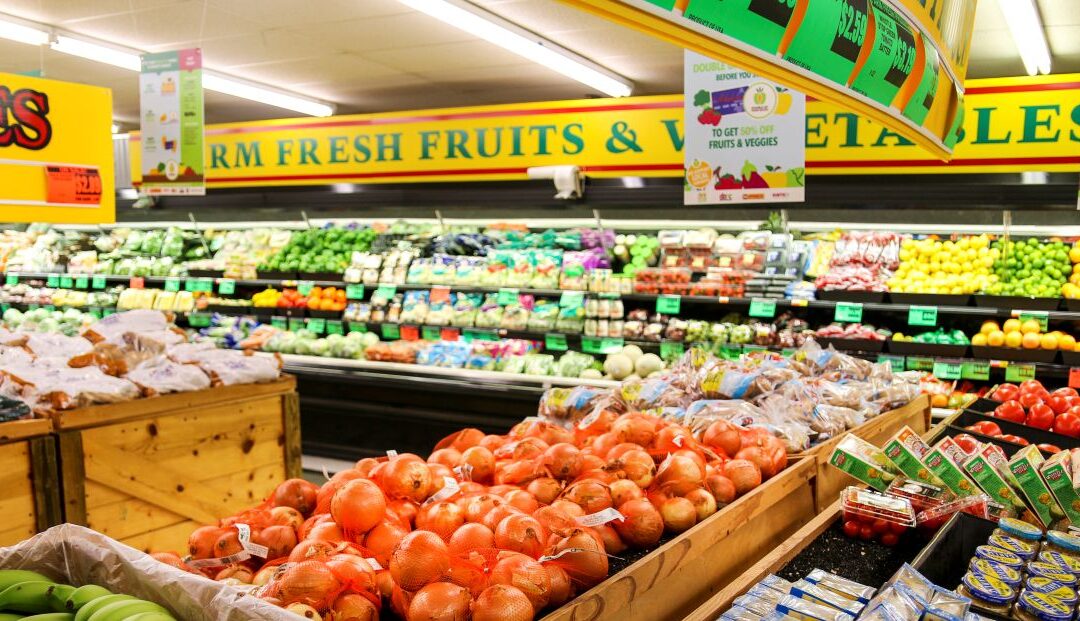

Double Up Food Bucks Alabama is enhancing communities by making...
From the Coastal Plain to the Black Belt, Alabama cattle producers are utilizing forage systems to their advantage to meet the challenges of modern agriculture. Alabama ranks 17th nationally in beef cattle, according to the Alabama Cattlemen’s Association. Alabama...
Alabama has been a stranger to the rain several times during the past few years. To prepare the state with more than just a forecast, the Alabama Drought Reach (ADR) program provides climate data statewide. The ADR program is a collaborative effort by the Auburn...
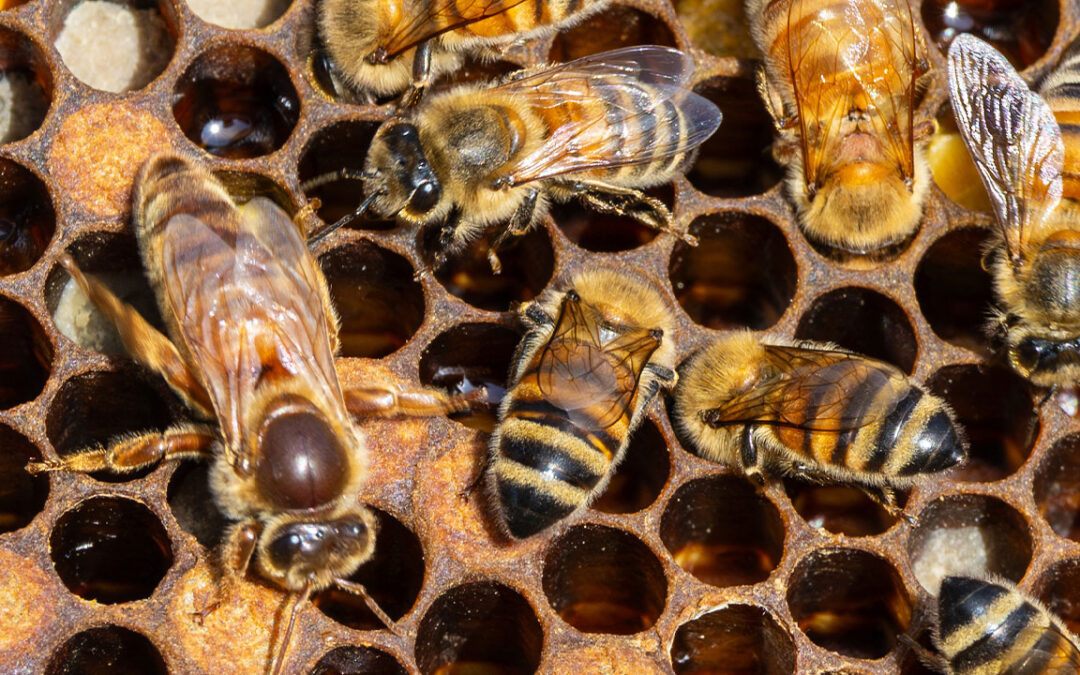
The annual U.S. Beekeeping Survey results are in for the 2024-2025 calendar year. In collaboration with Auburn University, the Apiary Inspectors of America, Oregon...
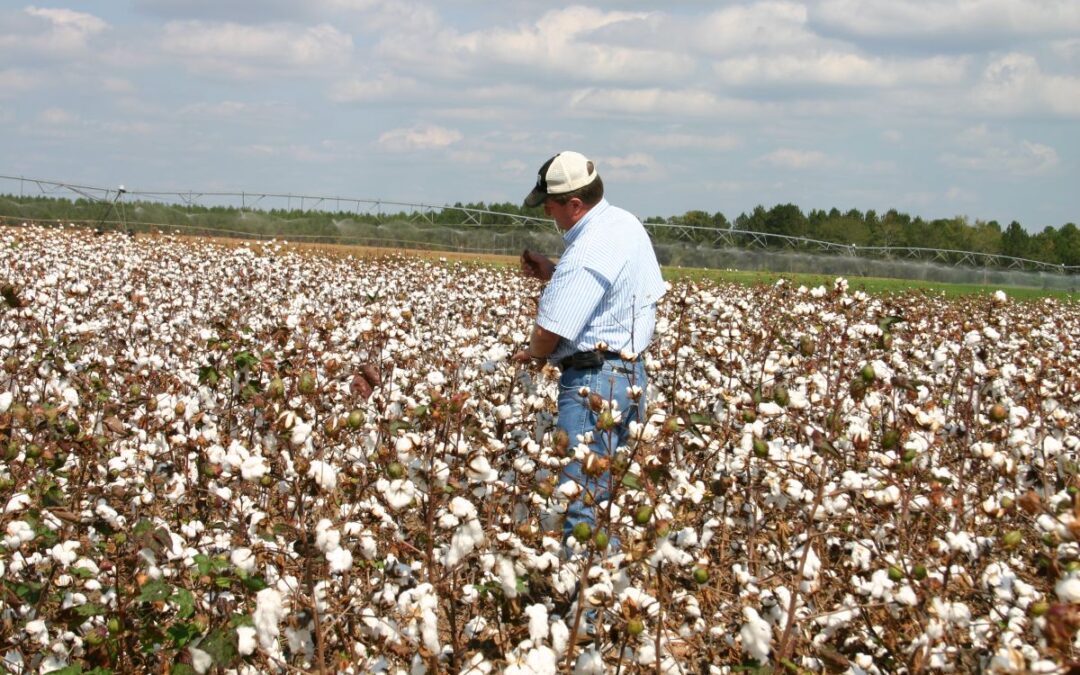
Cotton is undoubtedly one of the most recognizable plants in the world, with its heart-shaped leaves and branches that explode into powder-white fruit. But it’s also...

Alabama has been a stranger to the rain several times during the past few years. To prepare the state with more than just a forecast, the Alabama Drought Reach (ADR) program provides climate data statewide.
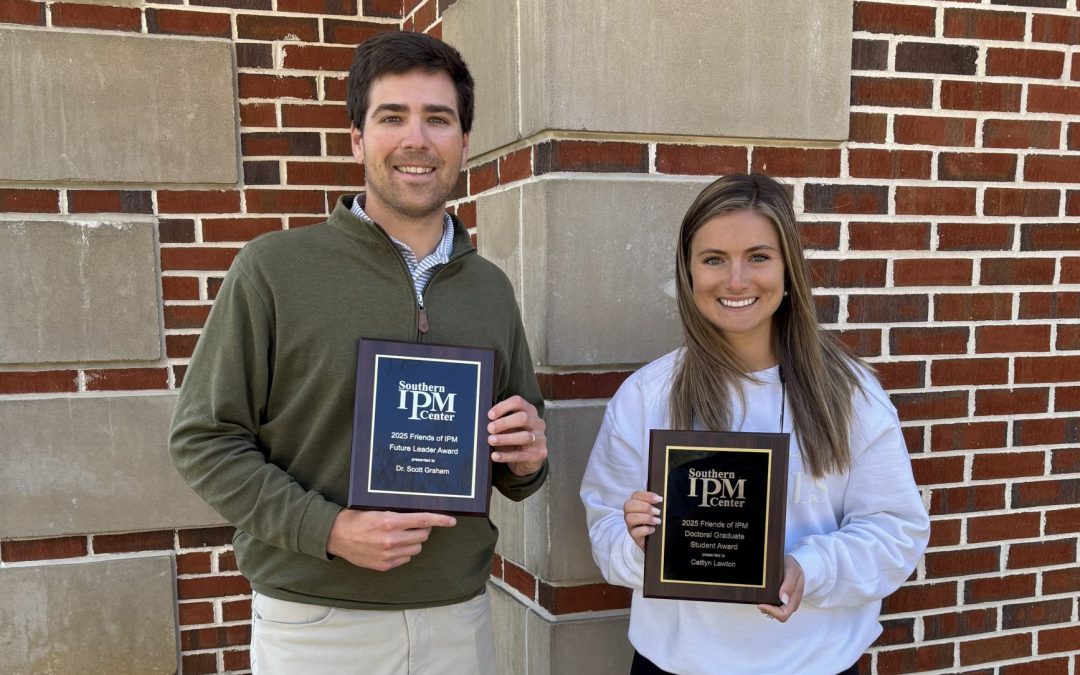
Auburn University graduate students and one faculty member rose above and beyond for this year’s Southern Integrated Pest Management (IPM) Awards. For the first time, two Auburn doctoral candidates, Caitlyn Lawton and Rogan Tokach, were honored for their achievements...
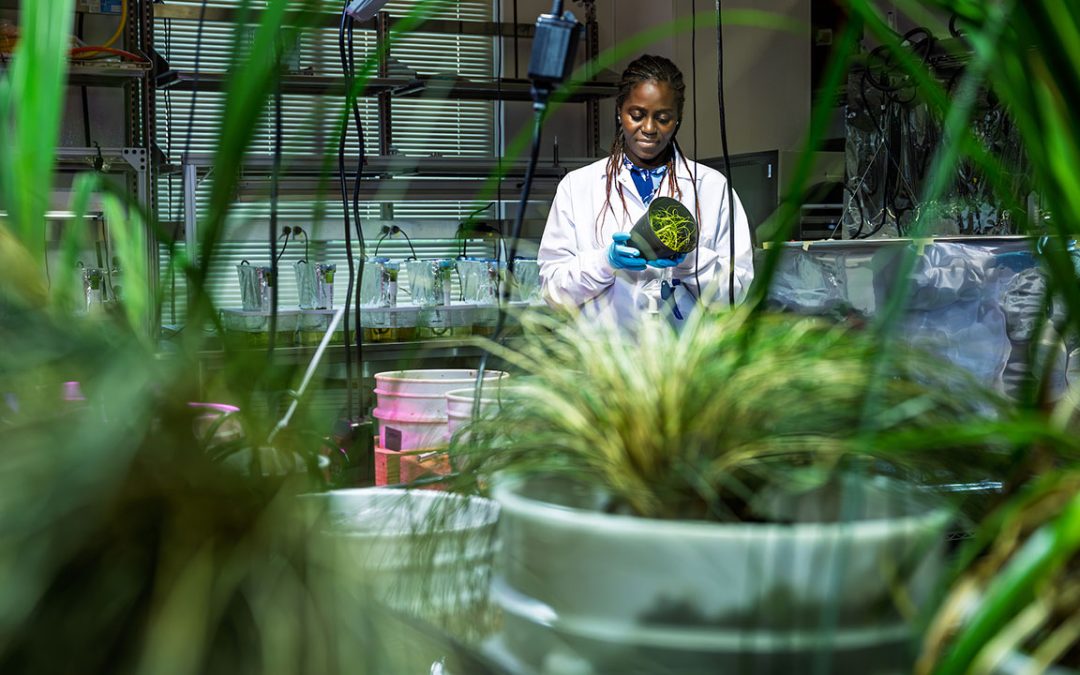
By Amy Weaver Contrary to what the name might suggest, the work currently happening in the Green Infrastructure Lab at Auburn has nothing to do with green-colored roads or buildings. No Emerald City here. “Green infrastructure is an approach to managing water and...
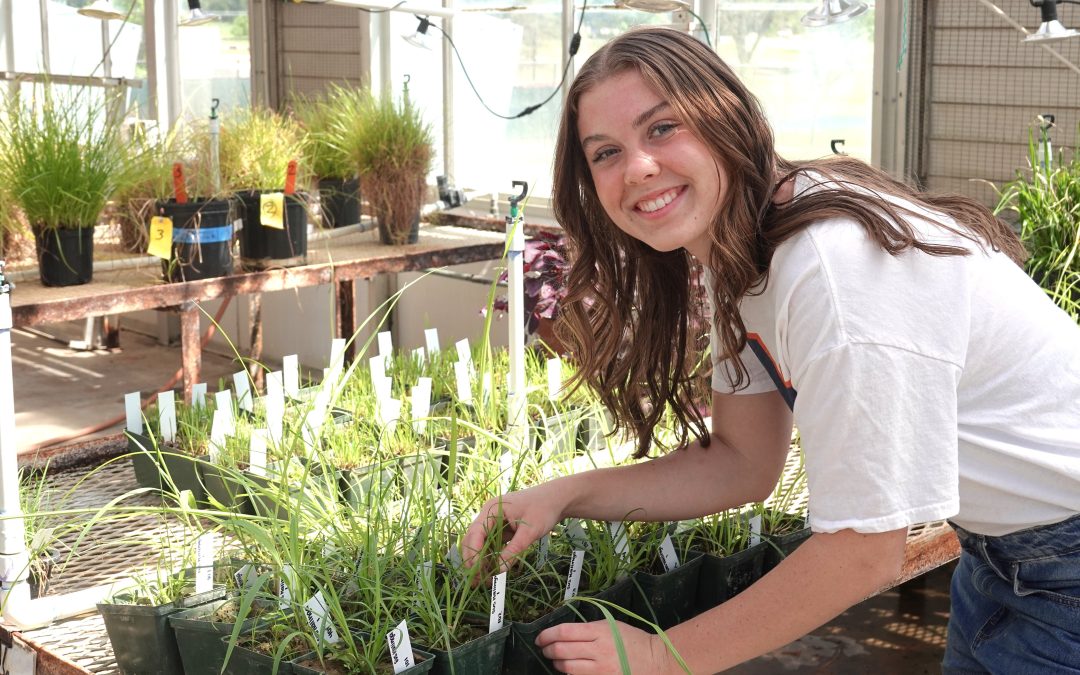
Auburn University College of Agriculture student Leah Johnson received a highly competitive collegiate internship with HudsonAlpha, a premier institute for biotechnology. She is the second student from the applied biotechnology major in the Department of Entomology...
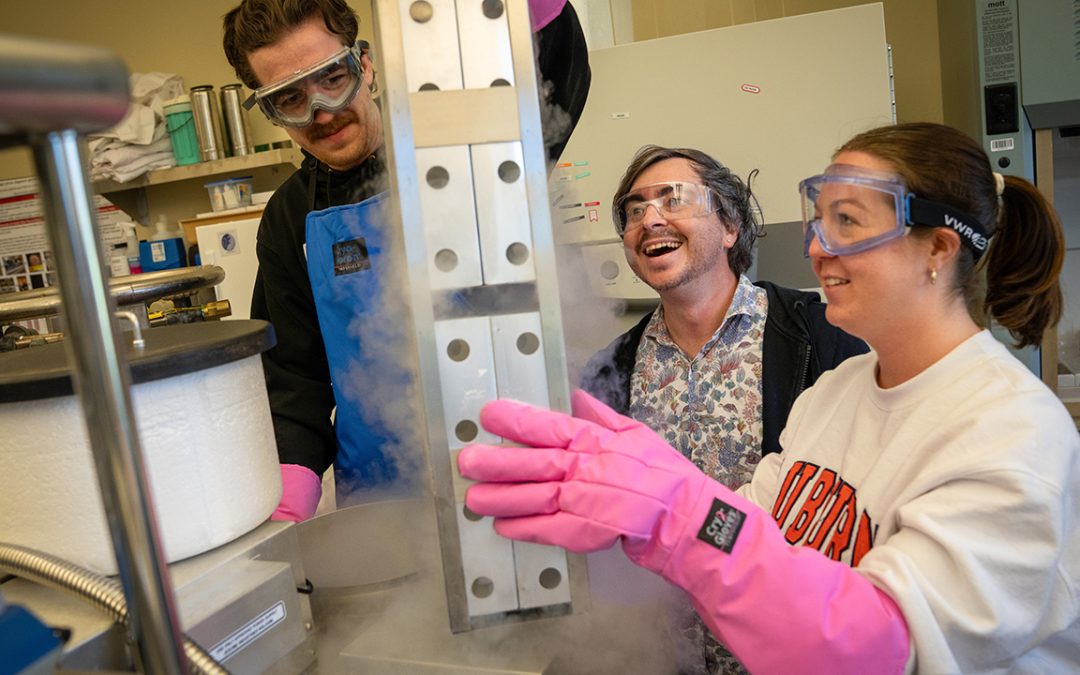
Better breeding ability would make catfish farming more efficient and profitable The $437 million U.S. catfish industry is in need of better genetic and breeding technologies to be competitive with foreign imports. Recently, Auburn scientists have made advances in...
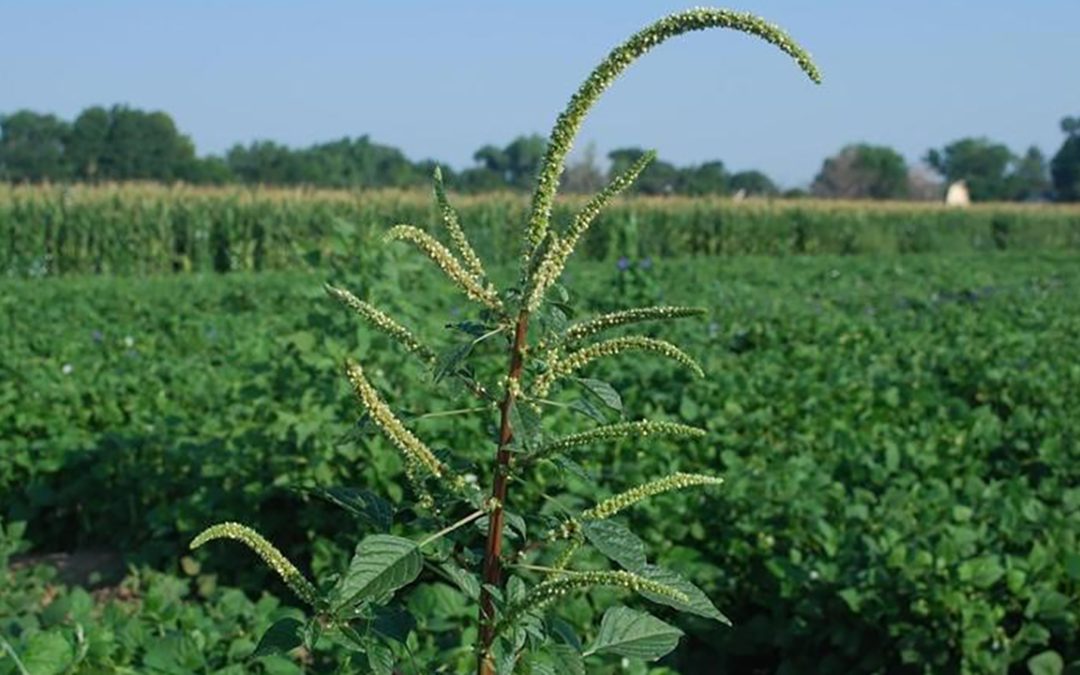
Imagine a weed that can produce 600,000 seeds per plant and grow as much as 2.5 inches per day. Such a weed exists, and it’s not being grown somewhere in a secure lab — it’s widespread in the fields of Alabama farmers and throughout the United States. This “super”...
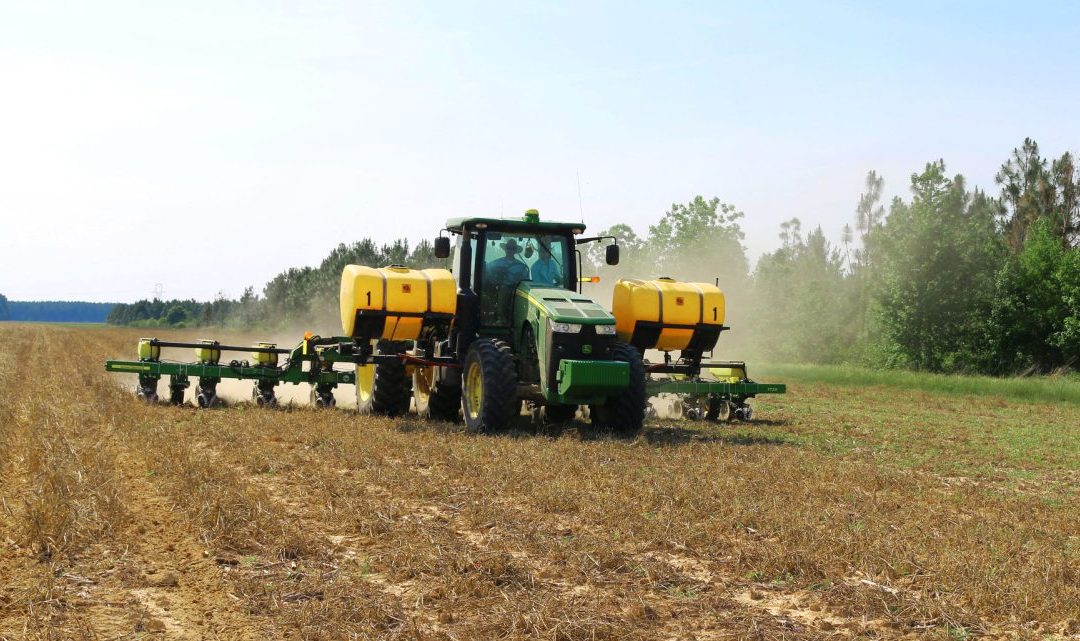
Is growing a cover crop on Alabama farms a solution or a problem for growers in the state who are trying to prevent soil and water erosion losses? A grant funded through the Alabama Agricultural Experiment Station research program for the current fiscal year will...
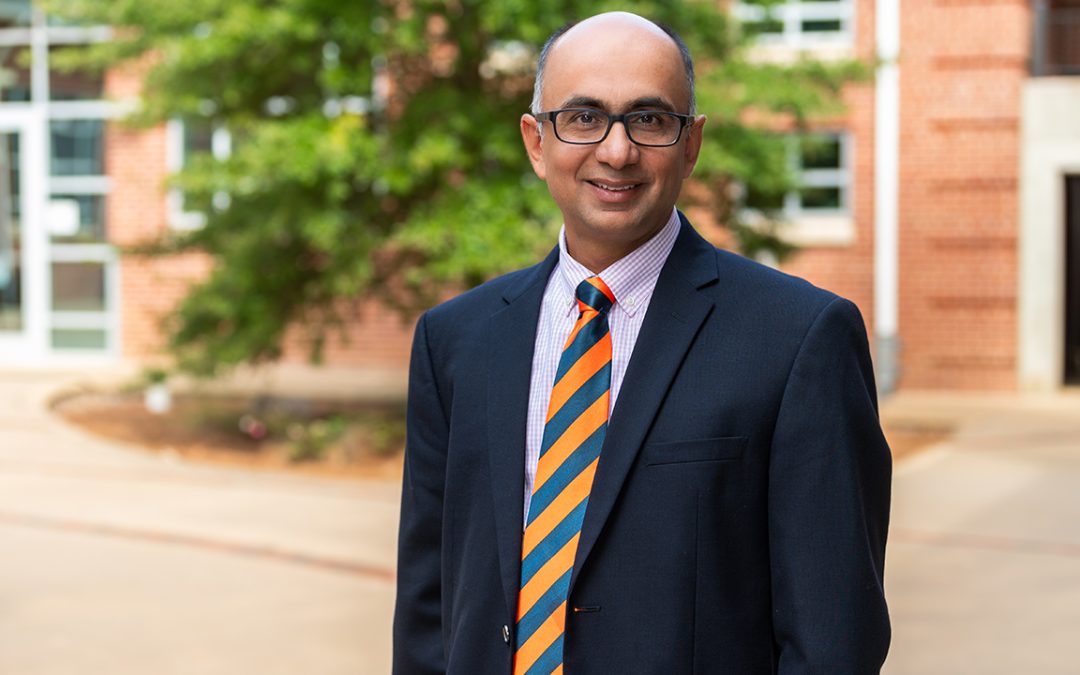
Sushil Adhikari will serve as the Auburn University College of Agriculture’s interim associate dean for research and interim associate director of the Alabama Agricultural Experiment Station, effective Feb. 16. He replaces Arthur Appel, who stepped into the role of...
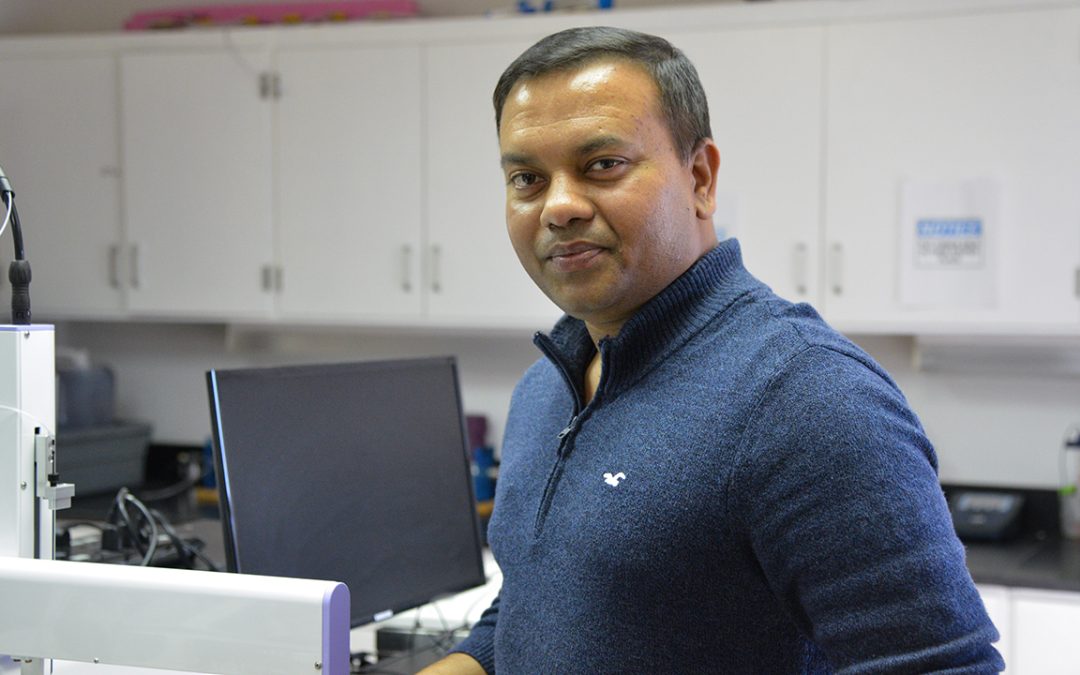
Each year, the Alabama poultry industry produces two fully loaded Nimitz-class aircraft carriers’ worth of poultry litter, or about 3.6 billion pounds. Poultry litter is rich in nitrogen and phosphorus, and much of the waste product is applied to farmland as a...
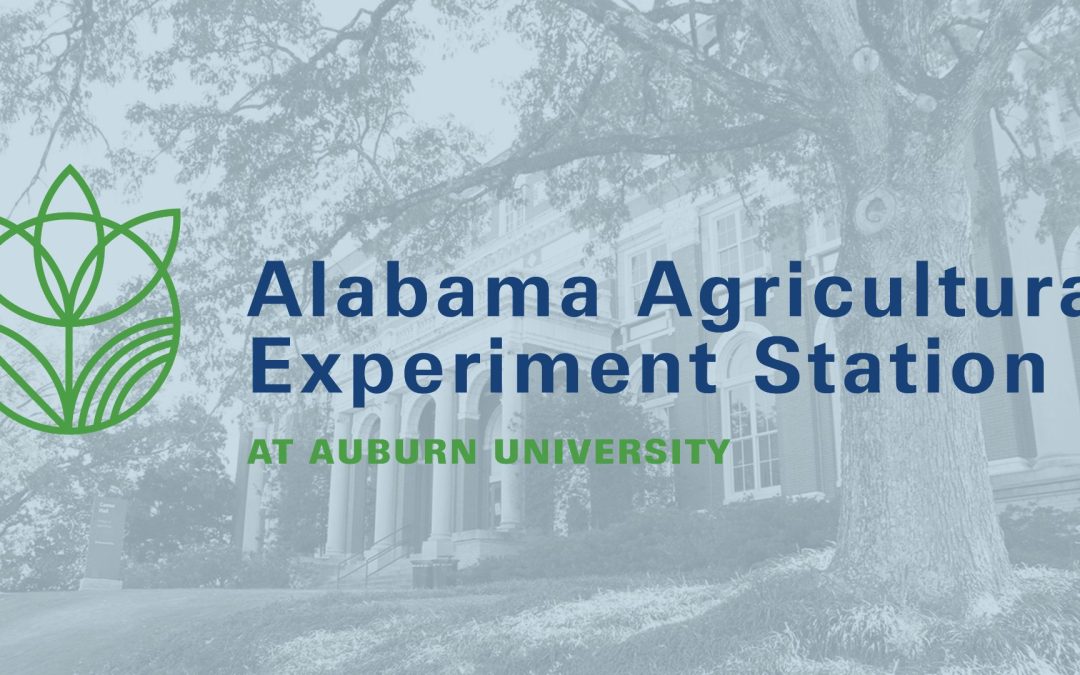
Research made possible by $300,000 USDA-NIFA grant The scale of pork production in the U. S. is such that reducing the average pig’s time on feed by just one day can put $76 million back into pork producers’ pockets. Animal scientists at Auburn University are...
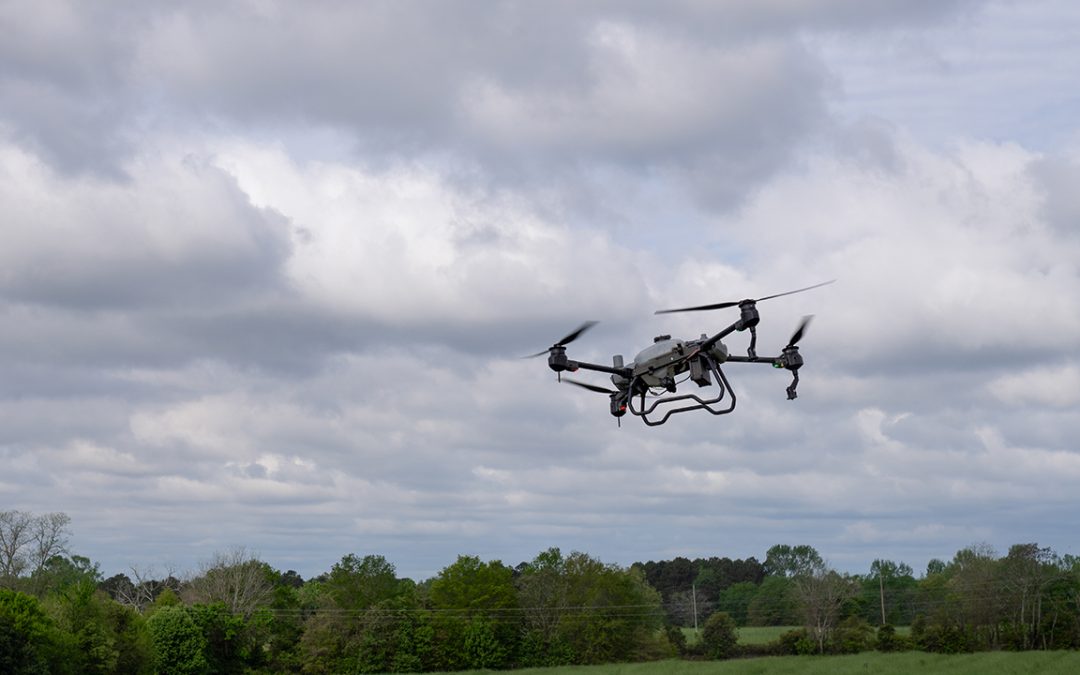
Auburn-developed method could advance efforts to breed a drought-tolerant peanut Auburn University researchers have devised a new means of measuring the physiological characteristics of peanut plants that should prove to be instrumental in speeding the breeding...
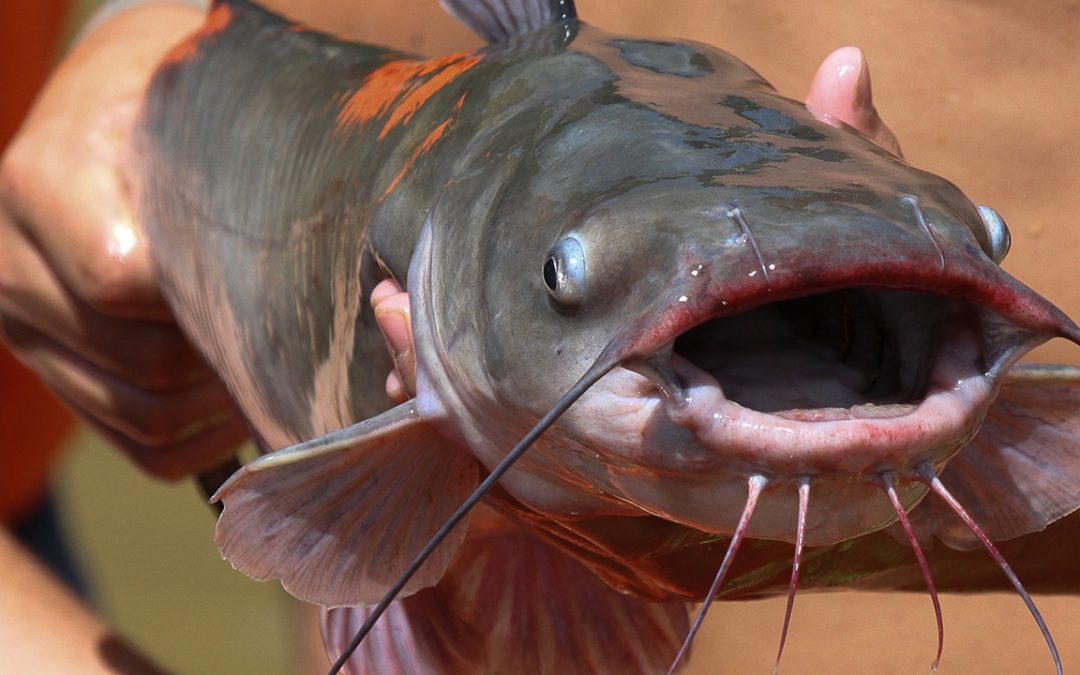
Catfish farmers may be hurting their profitability by needlessly sacrificing male catfish when collecting sperm for breeding, according to a recent Auburn study. The same study discovered the indicators farmers commonly use to select males for breeding, like head size...
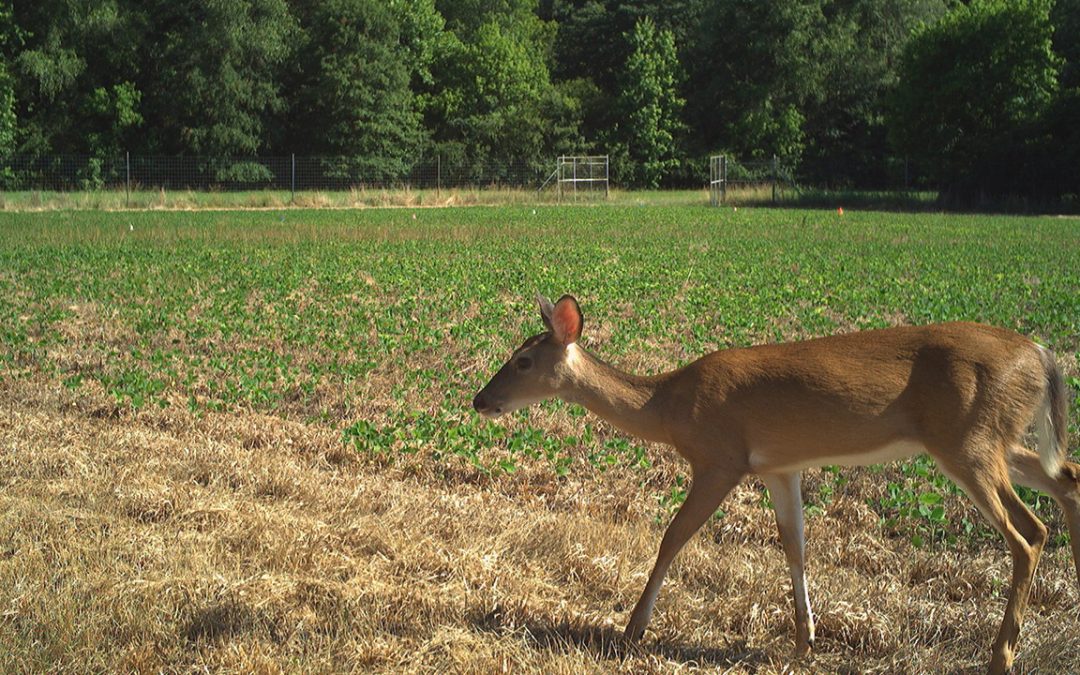
When can there be too many deer even for a hunting enthusiast? When that same enthusiast is a row-crop farmer, and the deer are using their fields as an all-you-can-eat buffet. While deer grazing on crops has been a consistent problem for decades, it has escalated in...
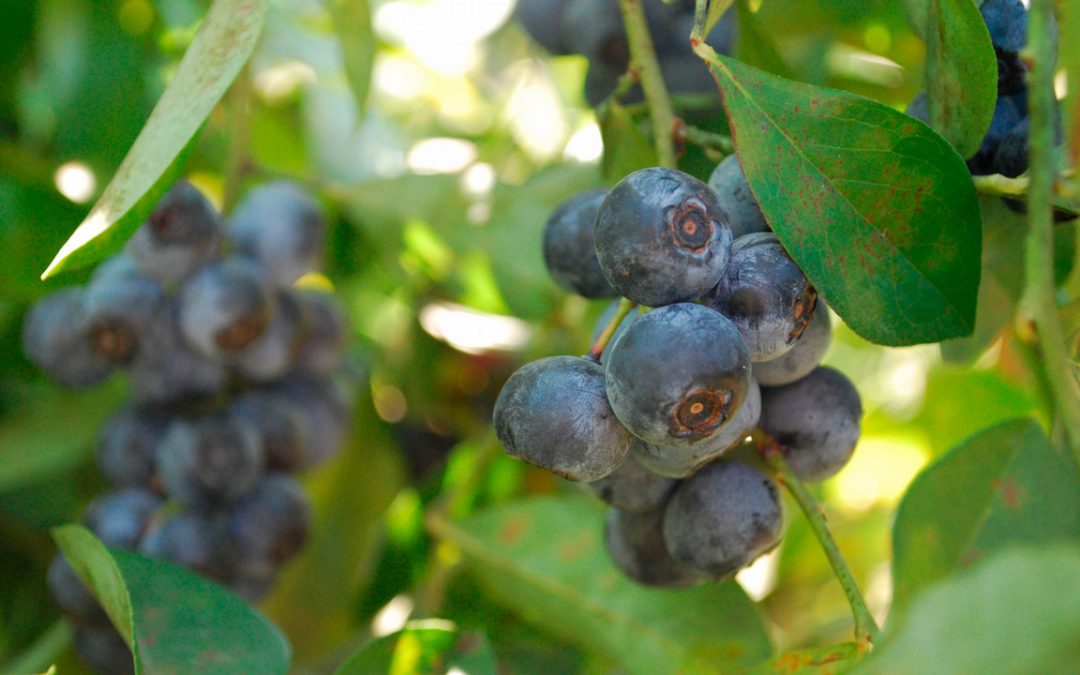
Alabama blueberry farmers could soon start growing more frost-tolerant cultivars thanks to recent research at Auburn University. Most Alabama growers are still heavily relying on the native species rabbiteye (Vaccinium virgatum Ait), while producers in neighboring...
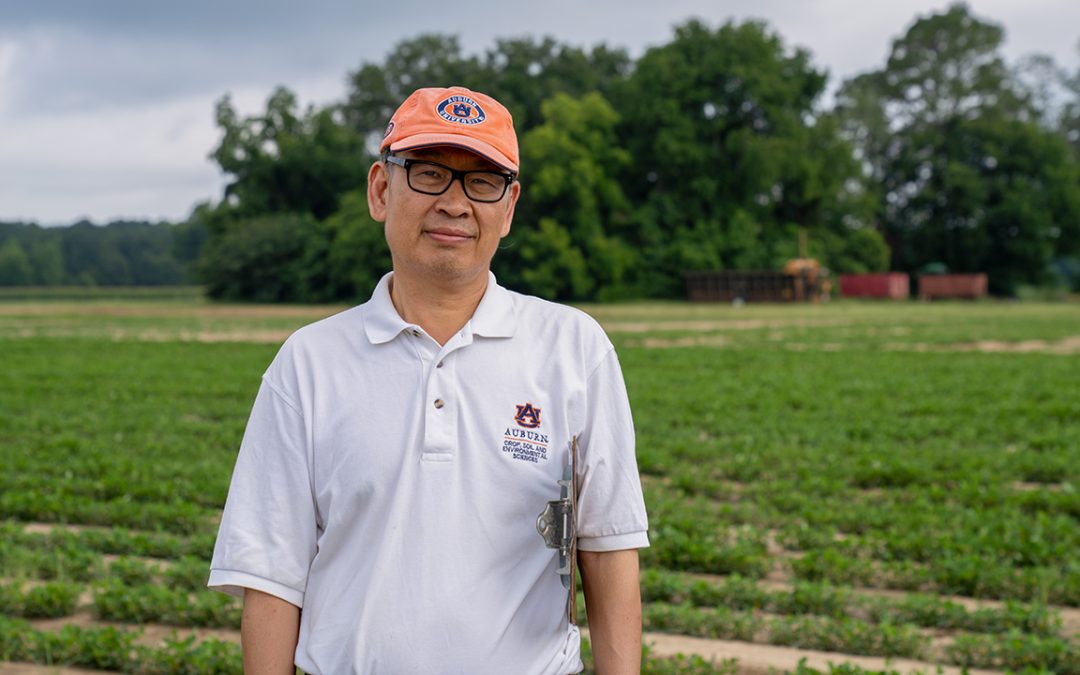
The Auburn University peanut breeding program has made significant strides in a surprisingly short amount of time, with one of its varietal releases now commanding 40-50% of the peanut acreage in Alabama.
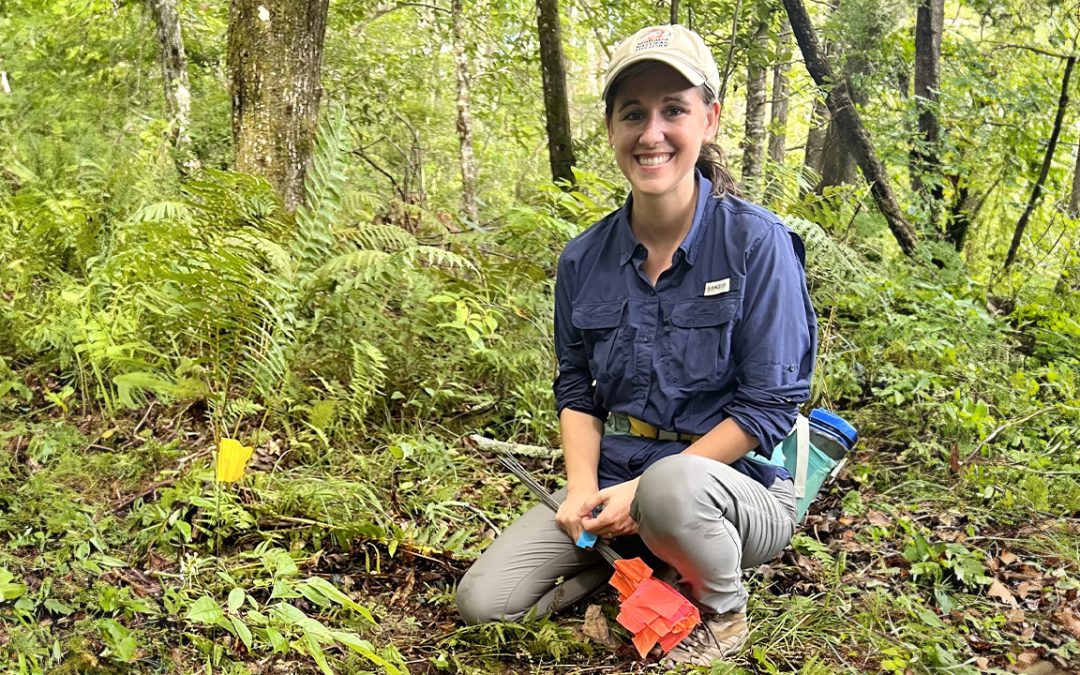
Auburn University’s Kelly Homan and Katelyn Lawson have joined forces to assist the state of Alabama in the creation of its 2025 State Wildlife Action Plan (SWAP) revision.
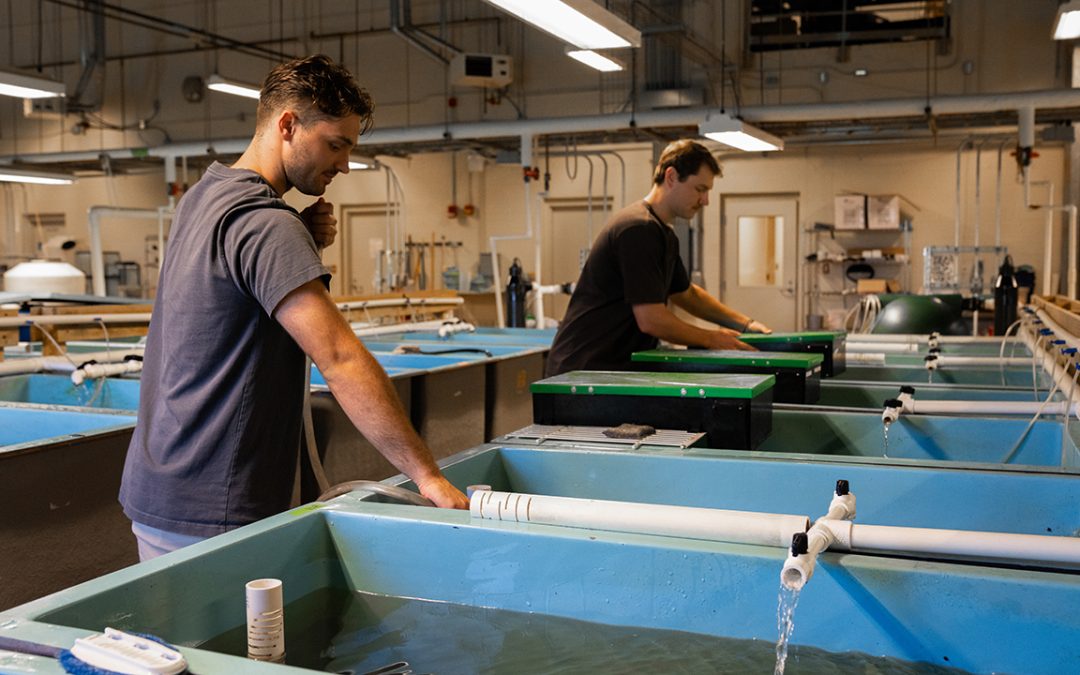
Vaccine development made possible by $300,000 USDA-NIFA grant Largemouth bass producers may soon have a new vaccine for a common pathogen affecting the unusually death-prone fish species. Auburn University researchers are working to lower the fish’s near 80% mortality...
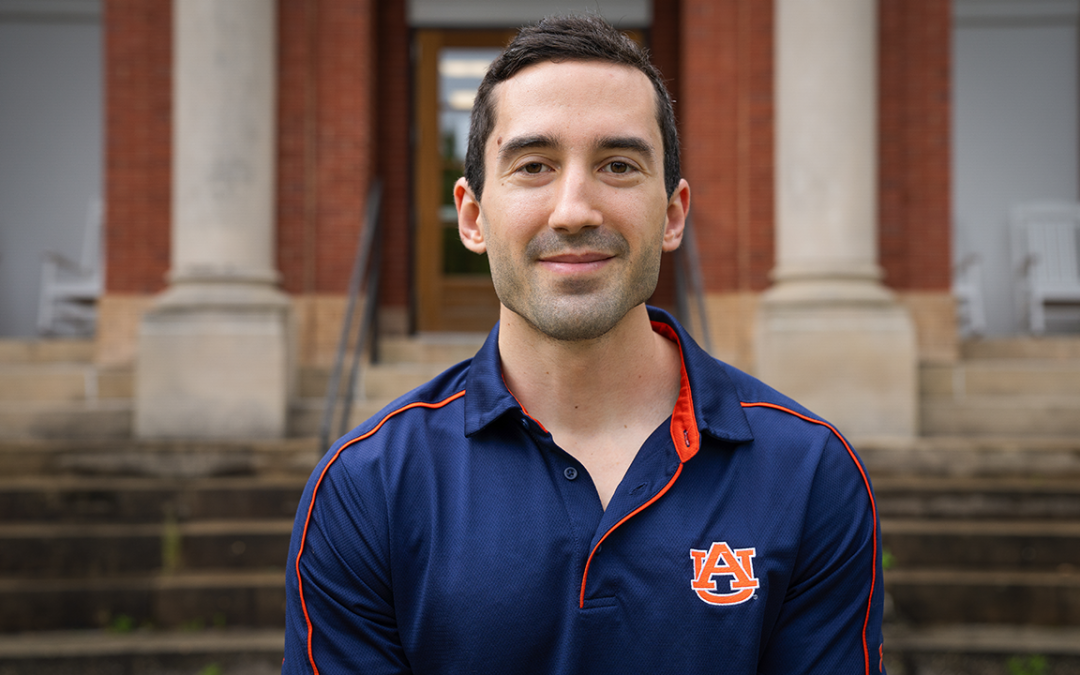
As John Mahas prepared for a move to start postdoctoral research at Cornell University, he was still wrapping up research in the Auburn University lab where he earned his master’s and doctorate. It was here he focused his work on managing the emerging cotton leafroll dwarf virus (CLRDV) and its vector, the cotton aphid, Aphis gossypii. This research led to the publication of two peer-reviewed papers, one of which marked a first in the Southeastern United States.

As a project manager with Auburn’s Water Resource Center, Cooley manages watershed restoration projects and educates communities on how to care for rivers, streams and creeks.
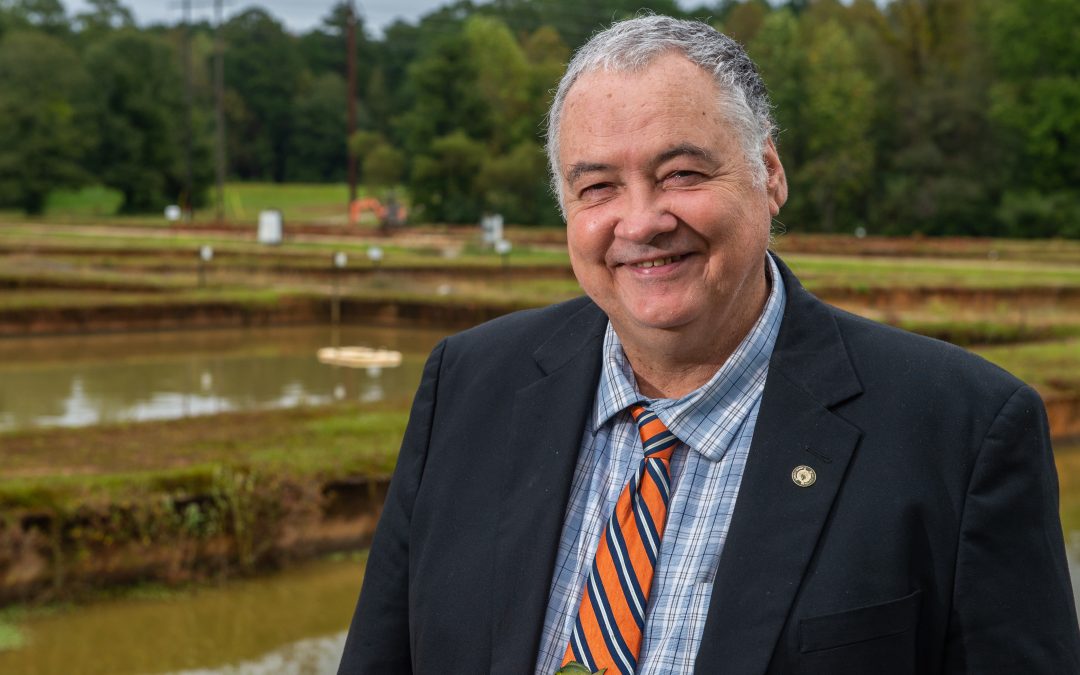
USDA-NIFA recently awarded a $650,000 grant to Rex Dunham to genetically improve the overall genotype and phenotype of both channel catfish and a hybrid between channel catfish females and blue catfish males. Dunham is a professor in the School of Fisheries,...
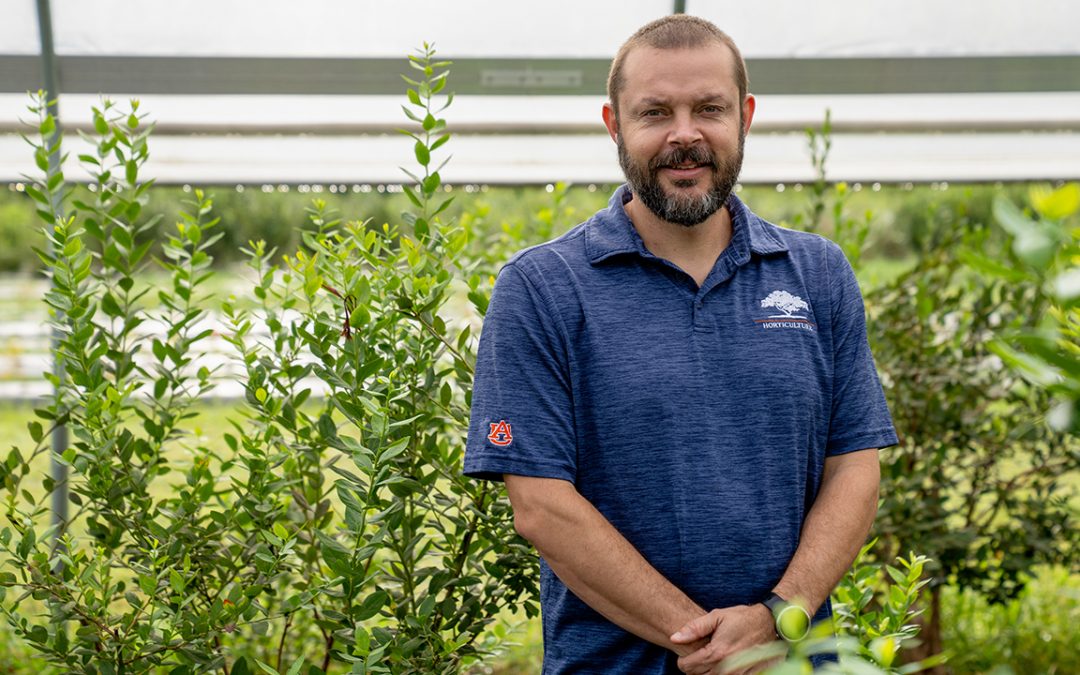
As the U.S. celebrates National Blueberry Month in July, researchers in the Auburn College of Agriculture and the Alabama Agricultural Experiment Station are looking for ways to boost blueberry production in the state by introducing more profitable cultivars for both field and protected cultivation.
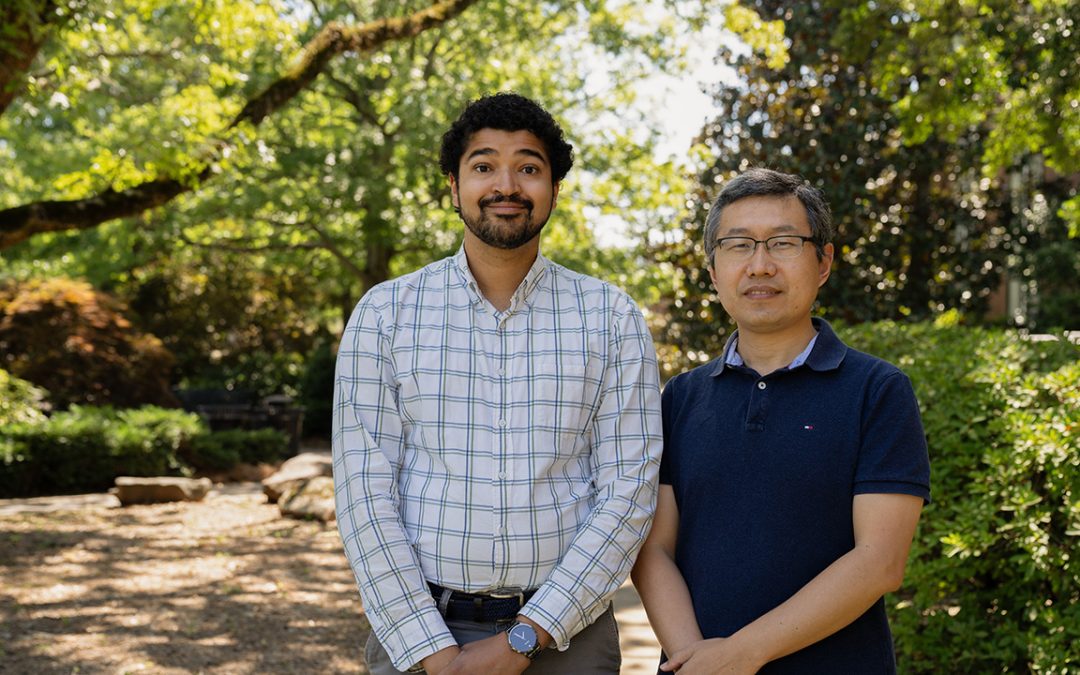
Researchers at Auburn University aim to reduce U.S. greenhouse gas emissions due to agriculture by modifying one of the world’s largest voluntary conservation programs: the USDA’s 25-million-acre Conservation Reserve Program (CRP).

Auburn University graduate students and one faculty member rose above and beyond for this year’s Southern Integrated Pest Management (IPM) Awards. For the first time, two Auburn doctoral candidates, Caitlyn Lawton and Rogan Tokach, were honored for their achievements...

By Amy Weaver Contrary to what the name might suggest, the work currently happening in the Green Infrastructure Lab at Auburn has nothing to do with green-colored roads or buildings. No Emerald City here. “Green infrastructure is an approach to managing water and...

Auburn University College of Agriculture student Leah Johnson received a highly competitive collegiate internship with HudsonAlpha, a premier institute for biotechnology. She is the second student from the applied biotechnology major in the Department of Entomology...

Better breeding ability would make catfish farming more efficient and profitable The $437 million U.S. catfish industry is in need of better genetic and breeding technologies to be competitive with foreign imports. Recently, Auburn scientists have made advances in...

Imagine a weed that can produce 600,000 seeds per plant and grow as much as 2.5 inches per day. Such a weed exists, and it’s not being grown somewhere in a secure lab — it’s widespread in the fields of Alabama farmers and throughout the United States. This “super”...

Is growing a cover crop on Alabama farms a solution or a problem for growers in the state who are trying to prevent soil and water erosion losses? A grant funded through the Alabama Agricultural Experiment Station research program for the current fiscal year will...

Sushil Adhikari will serve as the Auburn University College of Agriculture’s interim associate dean for research and interim associate director of the Alabama Agricultural Experiment Station, effective Feb. 16. He replaces Arthur Appel, who stepped into the role of...

Each year, the Alabama poultry industry produces two fully loaded Nimitz-class aircraft carriers’ worth of poultry litter, or about 3.6 billion pounds. Poultry litter is rich in nitrogen and phosphorus, and much of the waste product is applied to farmland as a...

Research made possible by $300,000 USDA-NIFA grant The scale of pork production in the U. S. is such that reducing the average pig’s time on feed by just one day can put $76 million back into pork producers’ pockets. Animal scientists at Auburn University are...

Auburn-developed method could advance efforts to breed a drought-tolerant peanut Auburn University researchers have devised a new means of measuring the physiological characteristics of peanut plants that should prove to be instrumental in speeding the breeding...

Catfish farmers may be hurting their profitability by needlessly sacrificing male catfish when collecting sperm for breeding, according to a recent Auburn study. The same study discovered the indicators farmers commonly use to select males for breeding, like head size...

When can there be too many deer even for a hunting enthusiast? When that same enthusiast is a row-crop farmer, and the deer are using their fields as an all-you-can-eat buffet. While deer grazing on crops has been a consistent problem for decades, it has escalated in...

Alabama blueberry farmers could soon start growing more frost-tolerant cultivars thanks to recent research at Auburn University. Most Alabama growers are still heavily relying on the native species rabbiteye (Vaccinium virgatum Ait), while producers in neighboring...

The Auburn University peanut breeding program has made significant strides in a surprisingly short amount of time, with one of its varietal releases now commanding 40-50% of the peanut acreage in Alabama.

Auburn University’s Kelly Homan and Katelyn Lawson have joined forces to assist the state of Alabama in the creation of its 2025 State Wildlife Action Plan (SWAP) revision.

Vaccine development made possible by $300,000 USDA-NIFA grant Largemouth bass producers may soon have a new vaccine for a common pathogen affecting the unusually death-prone fish species. Auburn University researchers are working to lower the fish’s near 80% mortality...

As John Mahas prepared for a move to start postdoctoral research at Cornell University, he was still wrapping up research in the Auburn University lab where he earned his master’s and doctorate. It was here he focused his work on managing the emerging cotton leafroll dwarf virus (CLRDV) and its vector, the cotton aphid, Aphis gossypii. This research led to the publication of two peer-reviewed papers, one of which marked a first in the Southeastern United States.

As a project manager with Auburn’s Water Resource Center, Cooley manages watershed restoration projects and educates communities on how to care for rivers, streams and creeks.

USDA-NIFA recently awarded a $650,000 grant to Rex Dunham to genetically improve the overall genotype and phenotype of both channel catfish and a hybrid between channel catfish females and blue catfish males. Dunham is a professor in the School of Fisheries,...

As the U.S. celebrates National Blueberry Month in July, researchers in the Auburn College of Agriculture and the Alabama Agricultural Experiment Station are looking for ways to boost blueberry production in the state by introducing more profitable cultivars for both field and protected cultivation.

Researchers at Auburn University aim to reduce U.S. greenhouse gas emissions due to agriculture by modifying one of the world’s largest voluntary conservation programs: the USDA’s 25-million-acre Conservation Reserve Program (CRP).